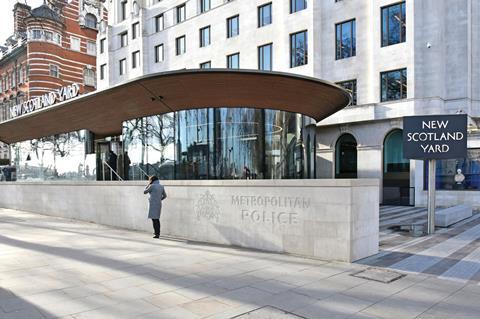After the Supreme Court confirmed last month that Scotland Yard had been under a duty to conduct effective investigations into the sexual offences committed by John Worboys against women he picked up in his London taxi, campaigners argued that it was now all the more necessary to defend human rights against threats from the government. This struck me as strange.

The ruling certainly depended on the Human Rights Act. Two victims of Worboys, DSD and NBV, persuaded the courts that failures by the Metropolitan Police had violated their rights under article 3 of the human rights convention – which says that no one shall be subjected to inhuman or degrading treatment. The police accepted that article 3 imposed a general duty on them to investigate serious ill-treatment but disputed its extent. By a majority, the court decided that the duty was broad enough to cover operational failures, not just failings that were structural or systemic.
But why did the women’s supporters argue, at a news conference immediately after the ruling, that the Human Rights Act was in jeopardy? It is easy enough for ministers and newspapers to campaign against the act when it is used by the least popular members of society. But this was a victory for the victims.
Of course, it was also a defeat for the government. The Supreme Court had overturned a longstanding common law principle, supported by the home secretary, that the police were under no general duty to catch criminals or protect the public. The justices also dismissed another of the government’s arguments: that our courts should hold back until the human rights court in Strasbourg has given clearer guidance on the positive obligations arising from article 3.
And the decision may well add to pressures on the police: Scotland Yard muttered darkly about having to shift resources away from investigating fraud. But it would be a brave government that stopped victims calling the police to account for what one of the justices described as ‘egregious errors’ in the investigation of serious crime. And, ironically, the Sun newspaper is citing the human rights convention – article 10, the freedom to receive information – in support of its attempt to find out why the Parole Board thought Worboys could be safely released.
It is also worth remembering that David Lidington, in his all-too-short time as justice secretary, managed to negotiate an end to the long-running spat with Strasbourg over the UK’s ‘blanket ban’ on prisoners’ votes. The government simply promised new guidance to make it clear that prisoners can vote while working in the community on temporary licence, or when let out early on home detention curfew. And defendants sentenced to prison will have to be told by the court they have lost their voting rights.

These reforms – insignificant though they may appear – were characterised by officials at the Council of Europe as an ‘adequate response’ to adverse judgments going back more than a decade. The proposals were ‘noted with satisfaction’ last year by representatives of other states signed up to the human rights convention – and the UK was simply asked to report back once they had been implemented.
There can be little doubt that the Human Rights Act is heading off cases that might otherwise lead to adverse findings at the human rights court in Strasbourg. That court dealt with 512 cases against the UK last year. Of those, 507 were declared inadmissible or struck out. Five cases came to court. The government won three of them and lost two. One of those violations related to an asylum-seeker who had been unlawfully detained for seven months. The other concerned delays a decade ago in the Scottish courts. No damages were awarded and only modest costs. Two UK violations compares well with more than 900 rulings against the other 46 Council of Europe states.
But although there is no prospect of UK legislation on human rights – or, it seems, on anything apart from Brexit – the human rights convention does seem to be at risk from other countries. There is every chance its 16th protocol will achieve enough ratifications to take effect this year. Drafted in response to the UK’s concerns about the court at the inter-governmental conference in Brighton in 2012, it allows the human rights court to deliver advisory opinions. These would not be binding. But if they are to a government’s liking and are effectively followed, they will block subsequent challenges.
There is more concern about a draft declaration for consideration by an inter-governmental conference in Copenhagen next month. Campaign groups are particularly worried about a proposal from Denmark that the court should no longer have jurisdiction over human rights breaches arising from inter-state conflicts.
Perhaps ironically, then, the best place to enforce the Council of Europe’s human rights convention remains the Supreme Court of the United Kingdom.
joshua@rozenberg.net



























2 Readers' comments